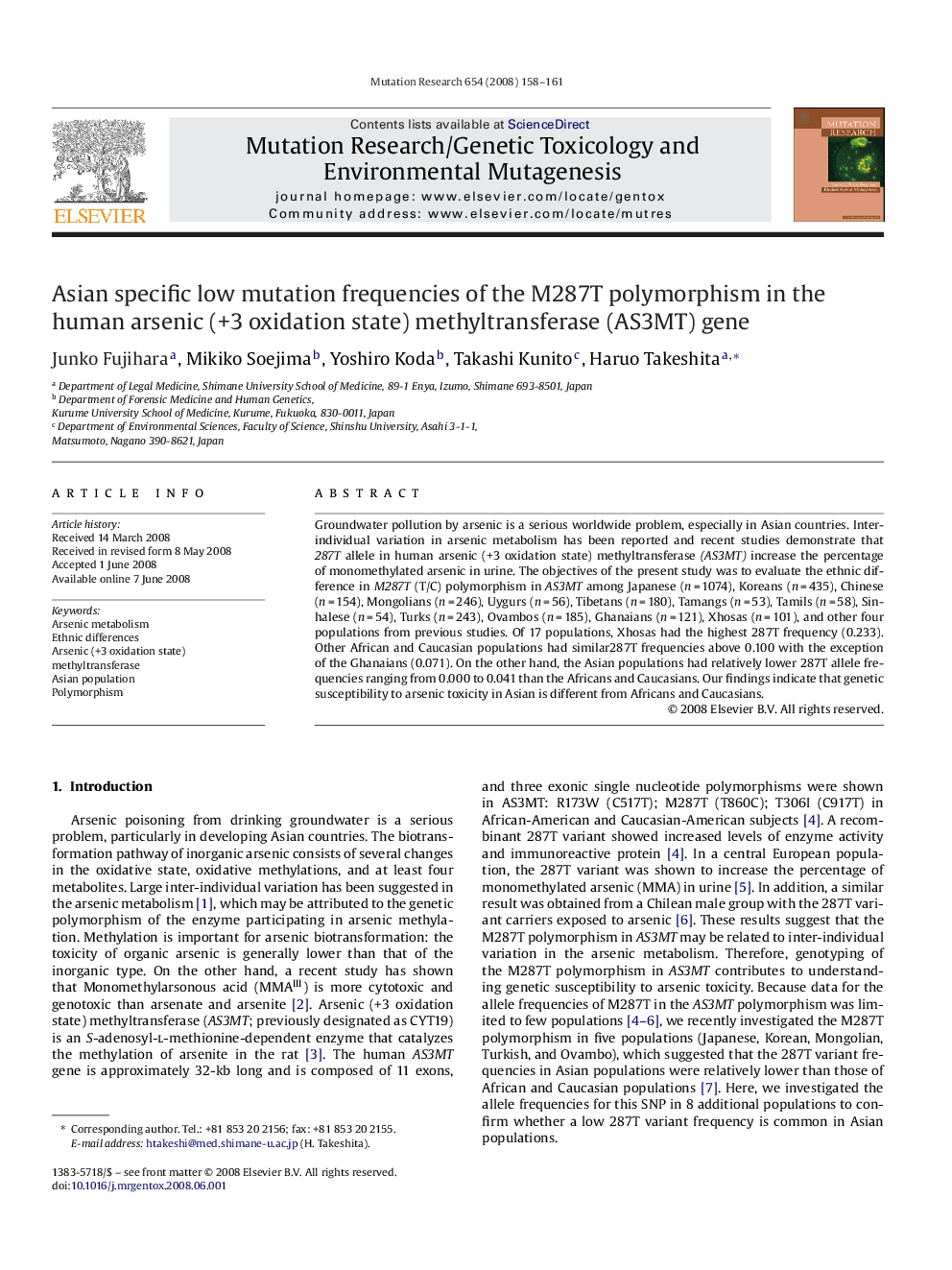| کد مقاله | کد نشریه | سال انتشار | مقاله انگلیسی | نسخه تمام متن |
|---|---|---|---|---|
| 2148923 | 1089589 | 2008 | 4 صفحه PDF | دانلود رایگان |

Groundwater pollution by arsenic is a serious worldwide problem, especially in Asian countries. Inter-individual variation in arsenic metabolism has been reported and recent studies demonstrate that 287T allele in human arsenic (+3 oxidation state) methyltransferase (AS3MT) increase the percentage of monomethylated arsenic in urine. The objectives of the present study was to evaluate the ethnic difference in M287T (T/C) polymorphism in AS3MT among Japanese (n = 1074), Koreans (n = 435), Chinese (n = 154), Mongolians (n = 246), Uygurs (n = 56), Tibetans (n = 180), Tamangs (n = 53), Tamils (n = 58), Sinhalese (n = 54), Turks (n = 243), Ovambos (n = 185), Ghanaians (n = 121), Xhosas (n = 101), and other four populations from previous studies. Of 17 populations, Xhosas had the highest 287T frequency (0.233). Other African and Caucasian populations had similar287T frequencies above 0.100 with the exception of the Ghanaians (0.071). On the other hand, the Asian populations had relatively lower 287T allele frequencies ranging from 0.000 to 0.041 than the Africans and Caucasians. Our findings indicate that genetic susceptibility to arsenic toxicity in Asian is different from Africans and Caucasians.
Journal: Mutation Research/Genetic Toxicology and Environmental Mutagenesis - Volume 654, Issue 2, 31 July 2008, Pages 158–161